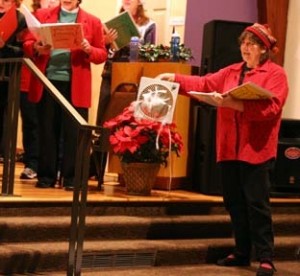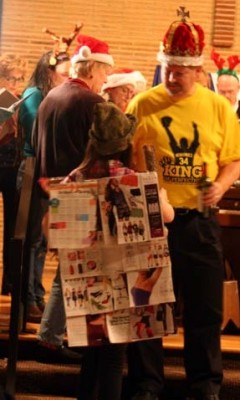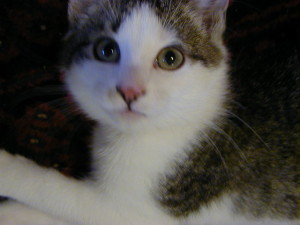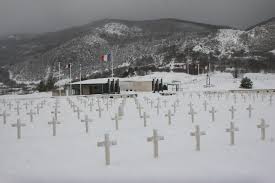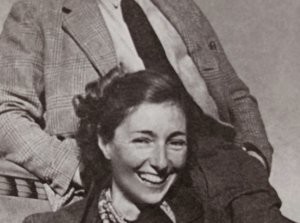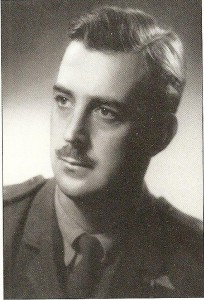Grievances
Three weeks ago I set out to write another blog post about grief. It was going to be a calm, wise little reflection on a remark my (beloved) voice teacher Tommie had made. We were talking about the abysmal technical support that’s available for anyone over the age of 40 who is trying to cope with computers.
She said, “Teachers and tech support people need to understand that they are talking to people who are grieving.”
I didn’t understand what she meant until I emerged from what I am about to relate. I was already grieving other things. I was sad from the deaths in the OK Chorale, from the death of the cat of my heart last summer, from the frightening near death of my college friend in November. My world felt precarious.
Christmas week I finished with choirs and teaching and was looking ahead to ten days of doing nothing except what felt good at the time. Then Christmas Eve I broke my partial. It snapped in two like a cracker, denying me a quarter of my teeth. It was five days before I could get an old partial adjusted. I was philosophical about it. It’s not like I hadn’t eaten enough all month long; a friend and I had been talking about doing more juicing so here was a good time to start.
Three days after Christmas, I dropped my laptop and cracked the screen. Insert one day of hysteria. I took it to Seattle Laptop and borrowed an old Dell from my friend Mike who made me a document folder and helped me access the internet and my email so I could do some of the things that used to require stamps and phone calls but now I do exclusively on the computer.
Seattle Laptop reported that it would cost as much to fix the laptop as it would to buy a new one. Insert another day of hysteria plus hyperventilation. This was my vacation. The idea was to relax and not have to think. I was mad at the world when I marched into Best Buy. I stood sulking at customer service until someone summoned the courage to approach me. I had on a piece of paper the name and model number of a Toshiba Satellite laptop. Gwen had suggested I look at it, that it might be what I wanted. I handed the model number to the agent.
“I want this computer,” I said.
“Do you want to know anything about it?” he asked.
“Nope,” I said.
“Do you want to see one? It’s set up over here.”
I hesitated.
“I’ll get you one while you play with the display model,” he said.
I pushed a few keys listlessly. I was hard pressed to describe how much I didn’t care.
He was back with my computer and a gleam of excitement in his eyes.
“Let me show you the touch screen,” he enthused. “This will be ten times faster than what you’re used to.”
Oh god, I thought, please don’t show me anything. It never occurred to me to say I didn’t want a touch screen. I just assumed this was the new technology being foisted upon us all whether we wanted it or not.
“Listen, does this computer have USB ports and a CD drive and can I stream Netflix and do email? Can I use Word? Because that’s all I care about.”
“But just look. . “
“I’ll take it,” I said.
Then came the warranty pitch. This is what I heard:
“Blah, blah, blah, blah, 6 months, blah blah blah, protection, blah blah, blah geek squad, blah blah blah.”
“How much?” I asked
He started circling things on a sheet of paper. “Blah blah blah, two years, blah blah, blah, comes with blah blah. . .”
“I don’t want the warranty,” I said.
I took the computer home, set it up—that’s one thing that has gotten less complicated—and then took it straight over to Seattle Laptop where My Life on a Hard Drive sat in a Samsung laptop with a cracked screen. I left the Toshiba with them to transfer everything from one computer to the other. Then it was New Years and I was able to forget about it for about 24 hours—not because I was drunk although that might have been a good strategy for the entire holiday season but because the shop was closed.
I got the Toshiba back with my files and a third of my email addresses intact. I moved in, deleted everything on the Start Page that didn’t look familiar, began to personalize and set preferences. I started the blog post about grieving. That’s when I realized there was something wrong with the space key. It stuck. Sometimes it stuck and wouldn’t make a space. Sometimes it stuck on space and ran down four lines before I could get it unstuck by pressing down on the keyboard frame at different points. I shut the computer and thought seriously about just going off the grid. I was about to anyway, in a manner of speaking.
A student emailed me to ask to change her lesson time. I had to start teaching in one more day. Everyone who walked into the house would need something from me and I would have to be able to think straight and be fucking gracious to them. I immediately burst into tears. I decided to take another week off to recover from the week that just was. I calculated that I could still get a good five days of rest.
I am old enough to remember when we thought it was clever to say that the light at the end of the tunnel turned out to be the headlight on the locomotion. On the first morning of my fresh new week off I called Best Buy to inquire about getting the space bar fixed.
“Just bring it in and swap it out for a different one.”
“But I’ve already moved all my stuff into this one. Can’t someone fix it?”
“You can bring it to the Geek Squad.”
“Can you transfer me over there?”
“They don’t use the phone. You have to bring it in. They’d have to check it and see if the bar is sticking because of food caught in it or something.”
“This is a computer you sold me and fresh out of the box, the space bar sticks,” the pitch of my voice was creeping ominously higher, if the poor sales person only knew.
“I’ll run over and ask them,” she said. This wasn’t part of her job. She was being helpful and nice.
Back on the phone this was her report: “They say they won’t fix it here. They’ll send it to Toshiba who also won’t fix it but will advise you to swap it out. It’ll take a month.”
I swamped up with panic. Ahead of me stretched my second week of intended rest and it, too, was going to be eaten up by goddamn technology.
“Are you fucking kidding me? This is your customer service? You people. . listen . . . I hate computers, I hate Best Buy!” I hung up.
I paced the floor and heaved anxiety around the house for a while. The cats disappeared. By the time I had ratcheted myself down to mere hysterical sobbing, I called my neighbor Gwen who knows something about just about everything. Gwen came over and reset the computer back to its original settings.
Meantime, my friend Nina (rhymes with Dinah) had gotten the voice lesson cancellation email and had inquired twice as to what was going on. “Don’t make me come up there!” she said in her second message.
Nina drove me and the stupid Toshiba to Best Buy the next day.
“I may embarrass you,” I said on the way over.
“I doubt it,” she said. She’s a good friend.
We got a very calm and reasonable sales person who listened to my story, helped me pick a computer –an Asus– better suited to me. There was no talk of touch screens or warranties.
I set up the Asus and took it over the Seattle Laptop. When Alex at Laptop heard my story he said, “Oh, I am so sorry!”
“You’re not half as sorry as that woman at Best Buy,” I said.
Alex transferred all my stuff a second time. He also spent an hour and half with me making sure I could get to everything I needed. He didn’t charge me anything. So there’s one good thing that came out of this. Seattle Laptop is now where I will go for everything computer related, including my next computer should I live so long as to need another.
I think computers are marvelous in some ways, but I am not interested in them as things in themselves. To me the computer is a means to an end and I just want it to work. I don’t enjoy spending day after day reveling in its latest dazzle. I would rather do almost anything else. When everything is working reasonably well, it’s great.
When Tommie said that tech support people need to understand that they are talking to people who are grieving I thought she was putting it a little dramatically, but I have changed my mind. Every time I open the computer I am actually grieving for a world that is gone, the world I grew up in, and knew how to navigate. There are still pieces of that world lying around to enjoy. I’m going to do just that as soon as I post this.
 RSS Feed
RSS Feed

